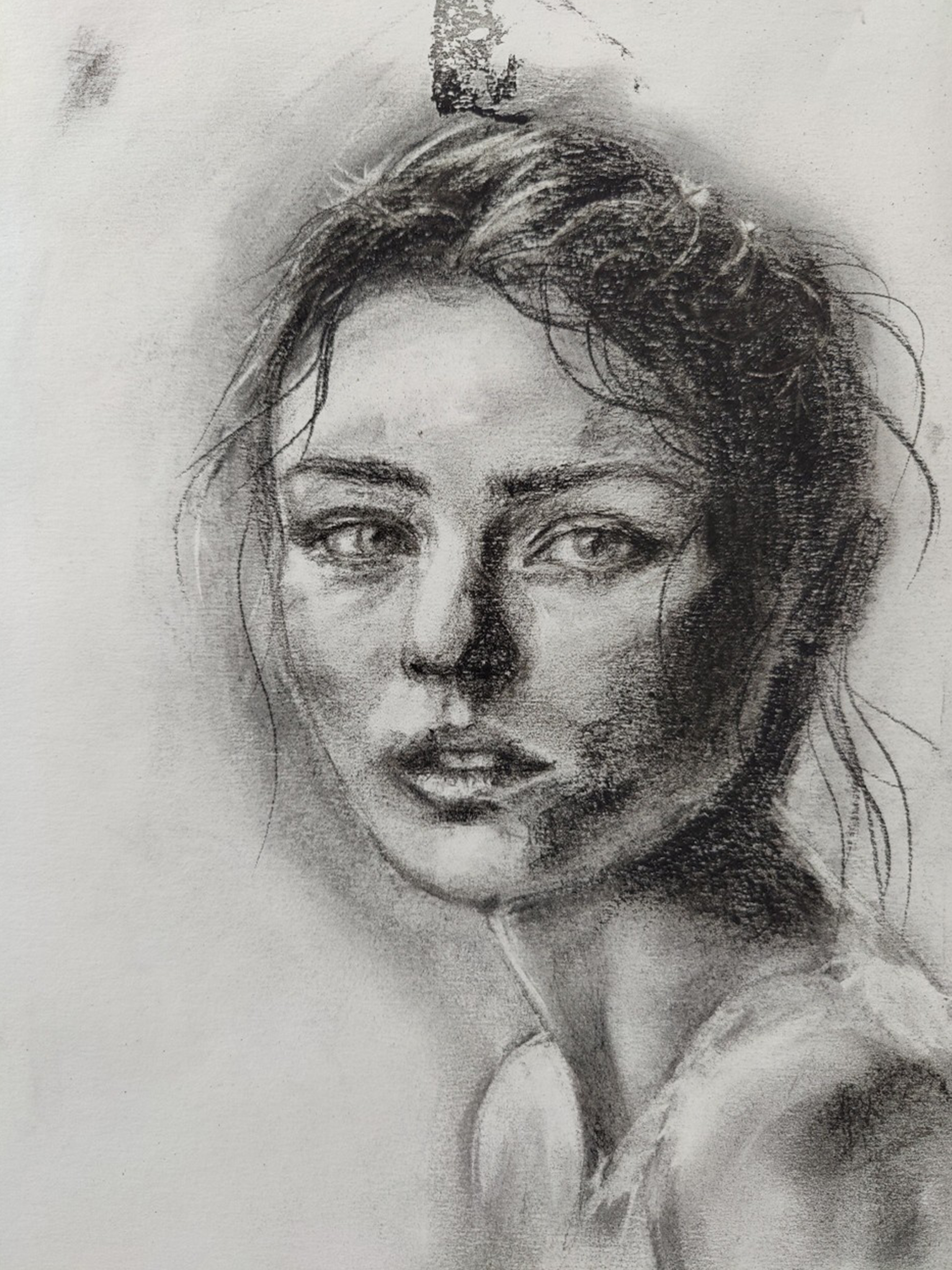
Unbroken
Her gaze—piercing, unyielding, a quiet mystery,
Draws you into a realm where sorrow dwells,
Yet in her stillness lies a subtle flame,
A spark of strength, unbroken, unclaimed.
Let us turn, for a moment, towards the quiet, flickering edges of the world. To the women who did not ask to be brave and strong. Who were simply living. Until life tore through them like a sudden lightening and thunder on an otherwise clear day. Unexpected and brutal!
Laxmi Agarwal was only fifteen when acid rained down on her face. I am not talking about the acid rain carried by the first showers of the monsoon. But, of the undiluted liquid that corrodes even metal, let alone human skin. Skin that once knew monsoons and mangoes and laughter—burnt by a stranger's cruelty. She almost put an end to what was left of her face and life. But something—a memory, a whisper, her mother’s eyes—held her back. She decided that if she had to live, she would show it all. The scars on face and soul both. With tentative steps she walked the streets. Little did she know that just that was enough. As many started to walk with her, her steps blazed a trail for others to follow.
In 1992, Bhanwari Devi spoke out against child marriage. A woman doing her job as a social worker. But in a world where caste sat like an invisible crown, her defiance came at a cost. She was subjected to the worst humiliation possible for a woman that too of the so-called lower caste. What followed was silence—official, systematic, suffocating. But she would not be silenced. From her pain grew a movement. The movement eventually led to the definition of the Sexual Harassment of Women at Workplace. After the dark night, it was the crack of dawn at last.
Nadia Murad. Yazidi. Captured by men who called themselves soldiers. Who mistook women for spoils. Who broke her body but not her spirit. When she escaped, she didn’t disappear. Rather than cloaking herself in the balm of anonymity, She spoke. Of violence. Of dignity. Of the Yazidi people. A Nobel Peace Prize sits beside her name now—maybe she does not think too much of it. Her work is far from done. She still toils from the first rays of the sun to the darkness that follows – the darkness that will end only with justice for dead and alive Yazidis.
Frida Kahlo, a renowned Mexican artist who lived with chronic pain all through her life. Bedridden from a spinal injury. And yet, she had more spine than most. In a time where women felt afraid of sharing their innermost feelings, she did it boldly and creatively through her paintings. She yearned to be seen and heard. Her grief of old dreams shattered, of relationships that promised fulfilment only to be illusory like a mirage. Her pain became the catalyst for beauty and self-expression.
Broken and Brilliant. That is the description of Radhika Gupta who is afflicted with a tilt of the neck. Many who saw it, rejected her. Finally, some saw who she was beyond that. Like mother’s milk for a frail new born, it infused new life and she finally grew to become one of the youngest CEOs in the world of finance.
These are names we know. But Unbroken is not just for them. There are numerous ‘unbroken’ whose story is yet to be told or might never be told.
The challenges may not be as dramatic as surviving in war situations; they may be everyday situations which require quiet resilience. Taking care of parents at home, working with their child through a project, volunteering time for a cause and cracking million dollar deals at work, all at the same time. For the quiet warriors who do not make noise—but never stop moving forward. Unbroken in the face of whatever challenge life throws at them.
Where Organizations are Architects of change
What if a workplace could hold not just your skills—but your stories?
What if it didn’t wait for tragedy to reveal your courage? In a world that celebrates results and rewards resilience only when it bleeds—what if we rewrote the script?
Organizations—real, living, breathing ones—are not just made of glass and steel. They are made of people. People who live the stories of their life. Where strength isn’t reserved for war survivors and Nobel winners—but recognized in the everyday acts of staying strong and sensitive at the same time.
These are the organizations that will be the quiet architects of change.
They won’t scream revolution. They will whisper evolution.
Built not just on profit.
But on people.
Unbroken!

List of Comments
Leave a Comment